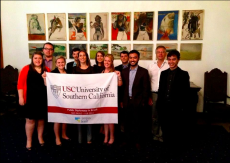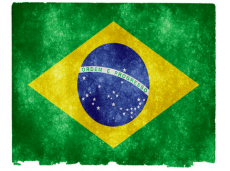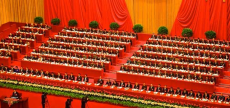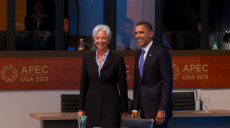The CPD Blog is intended to stimulate dialog among scholars and practitioners from around the world in the public diplomacy sphere. The opinions represented here are the authors' own and do not necessarily reflect CPD's views. For blogger guidelines, click here.

In early February, 7 USC Master of Public Diplomacy students embarked for São Paulo, Brazil. We arrived with just a day to get acclimated to the city before our meetings began on Monday. As students of diplomacy, the logical choice for a research trip to Brazil might be Brasilia. As the capital, it hosts the country's diplomatic corps and would certainly make a worthy case study of how diplomacy works in Brazil. While traditional diplomacy will always be worth pursuing, we are not going to Brazil to study it.

“Soft power” is an important element of foreign policy, emphasizing attraction rather than coercion. The concept, popularized by Harvard professor Joseph Nye, provides counterbalance to the infatuation with hard power, especially military force, which has been driven by the accelerated development of “smart” weaponry. Drones, for example, are appealing to their users because their “pilots” may be thousands of miles away, wholly out of danger while people on the ground are dying. It is war without cost for one side.

He can still dunk like a butterfly, but in the personally tragic case of former basketball pro Dennis Rodman in North Korea, the embrace of Kim Jong Un and his policies sting like a bee. Rodman is the most recent example of sports diplomacy gone awry. With the Sochi Olympics starting, a new cadre of unpredictable athlete diplomats will likely take the stage.

Each year the second year students in the USC Master of Public Diplomacy program select a location abroad to conduct new research that can further the study and practice of public diplomacy. This year, the Class of 2014 selected Sao Paulo, Brazil for its unique position in world politics. Brazil is currently transitioning from a regional and hemispheric power to a global one. The country will be on display during the 2014 FIFA World Cup and the 2016 Summer Olympics in Rio de Janeiro, and MPD students want to gain a better understanding of Brazilian public diplomacy practices.

Recent developments in Africa related to the contentious topic of homosexuality have reminded me of a discussion that took place during one of the interactive sessions at CPD’s 2013 Summer Institute in Public Diplomacy. During this discussion, I argued that the West needs to fully recognize and show respect to the cultural, religious, and sociological demagogy of countries (especially in Africa) opposed to the practice. This is especially true when promoting the acceptance of homosexuality as a human right.
AFRICAN PERSPECTIVE

In my new book, “Shaping China’s Global Imagination: Branding Nations at the World Expo,” I explore the idea of nation branding—what it is and how it works—through the instructive case of the Shanghai World Expo. Despite the growing interest in how countries promote their national image, the potential and role of branding in a nation’s communication has often been assumed but not demonstrated. This book reflects an effort to provide conceptual clarity and empirical attention to this very issue.

Since the beginning of the 21st century, China has been a rising star in the arena of public diplomacy. Its PD campaign, coordinated by the Ministry of Foreign Affairs, involves fourteen separate Departments, including the United Front Work Department, the Ministry of Commerce, the Ministry of Culture, and the General Administration of Press and Publication. [1] The colossal campaign aims to brand China as a responsible, peace-loving, and culturally sophisticated nation.

Indonesia’s Rise
Pages
Visit CPD's Online Library
Explore CPD's vast online database featuring the latest books, articles, speeches and information on international organizations dedicated to public diplomacy.
POPULAR ARTICLES
-
January 29
-
January 20
-
January 28
-
January 2
-
January 8
Featured Blogger
Join the Conversation
Interested in contributing to the CPD Blog? We welcome your posts. Read our guidelines and find out how you can submit blogs and photo essays >.








